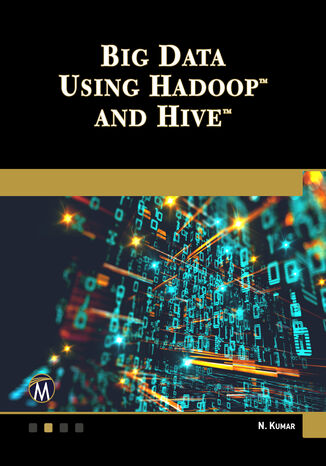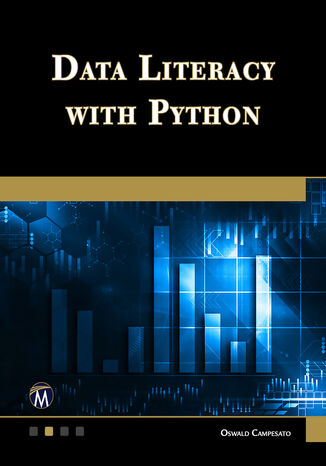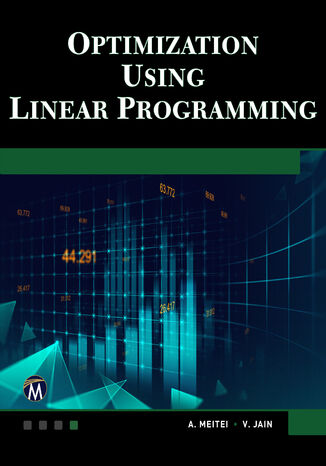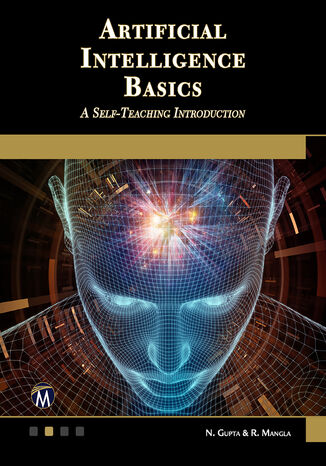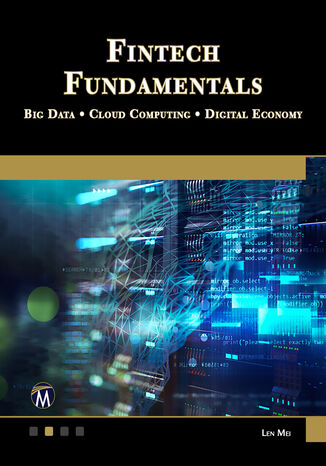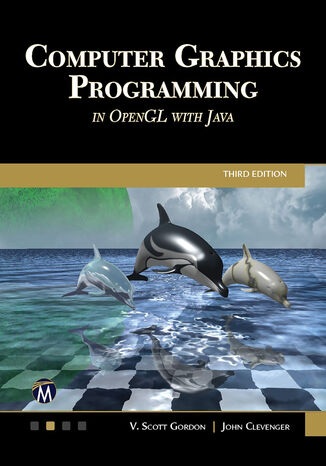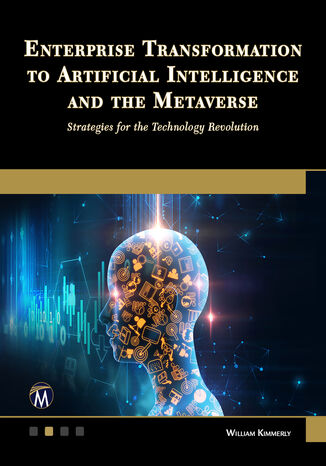Categories
Ebooks
-
Business and economy
- Bitcoin
- Businesswoman
- Coaching
- Controlling
- E-business
- Economy
- Finances
- Stocks and investments
- Personal competence
- Computer in the office
- Communication and negotiation
- Small company
- Marketing
- Motivation
- Multimedia trainings
- Real estate
- Persuasion and NLP
- Taxes
- Social policy
- Guides
- Presentations
- Leadership
- Public Relation
- Reports, analyses
- Secret
- Social Media
- Sales
- Start-up
- Your career
- Management
- Project management
- Human Resources
-
For children
-
For youth
-
Education
-
Encyclopedias, dictionaries
-
E-press
- Architektura i wnętrza
- Health and Safety
- Biznes i Ekonomia
- Home and garden
- E-business
- Ekonomia i finanse
- Esoterecism
- Finances
- Personal finance
- Business
- Photography
- Computer science
- HR & Payroll
- For women
- Computers, Excel
- Accounts
- Culture and literature
- Scientific and academic
- Environmental protection
- Opinion-forming
- Education
- Taxes
- Travelling
- Psychology
- Religion
- Agriculture
- Book and press market
- Transport and Spedition
- Healthand beauty
-
History
-
Computer science
- Office applications
- Data bases
- Bioinformatics
- IT business
- CAD/CAM
- Digital Lifestyle
- DTP
- Electronics
- Digital photography
- Computer graphics
- Games
- Hacking
- Hardware
- IT w ekonomii
- Scientific software package
- School textbooks
- Computer basics
- Programming
- Mobile programming
- Internet servers
- Computer networks
- Start-up
- Operational systems
- Artificial intelligence
- Technology for children
- Webmastering
-
Other
-
Foreign languages
-
Culture and art
-
School reading books
-
Literature
- Antology
- Ballade
- Biographies and autobiographies
- For adults
- Dramas
- Diaries, memoirs, letters
- Epic, epopee
- Essay
- Fantasy and science fiction
- Feuilletons
- Work of fiction
- Humour and satire
- Other
- Classical
- Crime fiction
- Non-fiction
- Fiction
- Mity i legendy
- Nobelists
- Novellas
- Moral
- Okultyzm i magia
- Short stories
- Memoirs
- Travelling
- Narrative poetry
- Poetry
- Politics
- Popular science
- Novel
- Historical novel
- Prose
- Adventure
- Journalism, publicism
- Reportage novels
- Romans i literatura obyczajowa
- Sensational
- Thriller, Horror
- Interviews and memoirs
-
Natural sciences
-
Social sciences
-
School textbooks
-
Popular science and academic
- Archeology
- Bibliotekoznawstwo
- Cinema studies
- Philology
- Polish philology
- Philosophy
- Finanse i bankowość
- Geography
- Economy
- Trade. World economy
- History and archeology
- History of art and architecture
- Cultural studies
- Linguistics
- Literary studies
- Logistics
- Maths
- Medicine
- Humanities
- Pedagogy
- Educational aids
- Popular science
- Other
- Psychology
- Sociology
- Theatre studies
- Theology
- Economic theories and teachings
- Transport i spedycja
- Physical education
- Zarządzanie i marketing
-
Guides
-
Game guides
-
Professional and specialist guides
-
Law
- Health and Safety
- History
- Road Code. Driving license
- Law studies
- Healthcare
- General. Compendium of knowledge
- Academic textbooks
- Other
- Construction and local law
- Civil law
- Financial law
- Economic law
- Economic and trade law
- Criminal law
- Criminal law. Criminal offenses. Criminology
- International law
- International law
- Health care law
- Educational law
- Tax law
- Labor and social security law
- Public, constitutional and administrative law
- Family and Guardianship Code
- agricultural law
- Social law, labour law
- European Union law
- Industry
- Agricultural and environmental
- Dictionaries and encyclopedia
- Public procurement
- Management
-
Tourist guides and travel
- Africa
- Albums
- Southern America
- North and Central America
- Australia, New Zealand, Oceania
- Austria
- Asia
- Balkans
- Middle East
- Bulgary
- China
- Croatia
- The Czech Republic
- Denmark
- Egipt
- Estonia
- Europe
- France
- Mountains
- Greece
- Spain
- Holand
- Iceland
- Lithuania
- Latvia
- Mapy, Plany miast, Atlasy
- Mini travel guides
- Germany
- Norway
- Active travelling
- Poland
- Portugal
- Other
- Przewodniki po hotelach i restauracjach
- Russia
- Romania
- Slovakia
- Slovenia
- Switzerland
- Sweden
- World
- Turkey
- Ukraine
- Hungary
- Great Britain
- Italy
-
Psychology
- Philosophy of life
- Kompetencje psychospołeczne
- Interpersonal communication
- Mindfulness
- General
- Persuasion and NLP
- Academic psychology
- Psychology of soul and mind
- Work psychology
- Relacje i związki
- Parenting and children psychology
- Problem solving
- Intellectual growth
- Secret
- Sexapeal
- Seduction
- Appearance and image
- Philosophy of life
-
Religion
-
Sport, fitness, diets
-
Technology and mechanics
Audiobooks
-
Business and economy
- Bitcoin
- Businesswoman
- Coaching
- Controlling
- E-business
- Economy
- Finances
- Stocks and investments
- Personal competence
- Communication and negotiation
- Small company
- Marketing
- Motivation
- Real estate
- Persuasion and NLP
- Taxes
- Social policy
- Guides
- Presentations
- Leadership
- Public Relation
- Secret
- Social Media
- Sales
- Start-up
- Your career
- Management
- Project management
- Human Resources
-
For children
-
For youth
-
Education
-
Encyclopedias, dictionaries
-
E-press
-
History
-
Computer science
-
Other
-
Foreign languages
-
Culture and art
-
School reading books
-
Literature
- Antology
- Ballade
- Biographies and autobiographies
- For adults
- Dramas
- Diaries, memoirs, letters
- Epic, epopee
- Essay
- Fantasy and science fiction
- Feuilletons
- Work of fiction
- Humour and satire
- Other
- Classical
- Crime fiction
- Non-fiction
- Fiction
- Mity i legendy
- Nobelists
- Novellas
- Moral
- Okultyzm i magia
- Short stories
- Memoirs
- Travelling
- Poetry
- Politics
- Popular science
- Novel
- Historical novel
- Prose
- Adventure
- Journalism, publicism
- Reportage novels
- Romans i literatura obyczajowa
- Sensational
- Thriller, Horror
- Interviews and memoirs
-
Natural sciences
-
Social sciences
-
Popular science and academic
-
Guides
-
Professional and specialist guides
-
Law
-
Tourist guides and travel
-
Psychology
- Philosophy of life
- Interpersonal communication
- Mindfulness
- General
- Persuasion and NLP
- Academic psychology
- Psychology of soul and mind
- Work psychology
- Relacje i związki
- Parenting and children psychology
- Problem solving
- Intellectual growth
- Secret
- Sexapeal
- Seduction
- Appearance and image
- Philosophy of life
-
Religion
-
Sport, fitness, diets
-
Technology and mechanics
Videocourses
-
Data bases
-
Big Data
-
Biznes, ekonomia i marketing
-
Cybersecurity
-
Data Science
-
DevOps
-
For children
-
Electronics
-
Graphics/Video/CAX
-
Games
-
Microsoft Office
-
Development tools
-
Programming
-
Personal growth
-
Computer networks
-
Operational systems
-
Software testing
-
Mobile devices
-
UX/UI
-
Web development
-
Management
Podcasts
Market Research and Analysis. Mastering Market Research: Advanced Methods, Design, and Data Analysis
Mercury Learning and Information, Marcus Goncalves
This book offers an in-depth exploration of market research and analysis, guiding readers through the entire process from defining research objectives to communicating results. Begin by understanding the purpose and ethics of market research, laying a strong groundwork for your studies. Progress to defining precise research objectives and exploring secondary research methods to gather existing information.Next, engage with primary research methods, focusing on both quantitative and qualitative approaches. Learn how to develop and distribute surveys, choose the right sampling techniques, and utilize tools for data mining and web scraping. Gain insights into focus groups and observation studies, understanding how these qualitative methods can provide depth to your research.Finally, master the art of data analysis and result communication. Explore descriptive statistics, hypothesis testing, and inferential statistics to make sense of your data. Learn to effectively present your findings to stakeholders, ensuring your research translates into actionable insights. By the end of the course, you will be well-equipped to conduct thorough market research and communicate your results effectively.
Big Data Using Hadoop and Hive. Master Big Data Solutions with Hadoop and Hive
Mercury Learning and Information, Nitin Kumar
This book is a guide for developers and engineers to use Hadoop and Hive for scalable big data applications. It covers reading, writing, and managing large datasets with Hive and provides a concise introduction to Apache Hadoop and Hive, detailing their collaboration to simplify development. Through clear examples, the book explains the logic, code, and configurations needed for building successful distributed applications.The course starts with an introduction to big data and Apache Hadoop fundamentals. It then covers the Hadoop Distributed Filesystem and how to get started with Hadoop. The journey continues with interfaces to access HDFS files, resource management with Yet Another Resource Negotiator, and MapReduce for data processing. The book also explores Hive architecture, storage types, and the Hive query language.Mastering these concepts is vital for creating scalable big data solutions. This book ensures a smooth transition from novice to proficient Hadoop and Hive user, providing practical skills and comprehensive knowledge. By the end, readers will be able to set up, configure, and optimize Hadoop, utilize Hive for data management, and effectively solve big data challenges.
Data Literacy With Python. A Comprehensive Guide to Understanding and Analyzing Data with Python
Mercury Learning and Information, Oswald Campesato
This book ushers readers into the world of data, emphasizing its importance in modern industries and how its management leads to insightful decision-making. Using Python 3, the book introduces foundational data tasks and progresses to advanced model training concepts. Detailed, step-by-step Python examples help readers master training models, starting with the kNN algorithm and moving to other classifiers with minimal code adjustments. Tools like Sweetviz, Skimpy, Matplotlib, and Seaborn are introduced for hands-on chart and graph rendering.The course begins with working with data, detecting outliers and anomalies, and cleaning datasets. It then introduces statistics and progresses to using Matplotlib and Seaborn for data visualization. Each chapter builds on the previous one, ensuring a comprehensive understanding of data management and analysis.These concepts are crucial for making data-driven decisions. This book transitions readers from basic data handling to advanced model training, blending theoretical knowledge with practical skills. Companion files with source code and data sets enhance the learning experience, making this book an invaluable resource for mastering data science with Python.
Optimization Using Linear Programming. A Practical Guide to Mastering Linear Programming Techniques
Mercury Learning and Information, A. J. Metei, Veena Jain
This book is designed for engineers, mathematicians, computer scientists, financial analysts, and anyone interested in using numerical linear algebra, matrix theory, and game theory to solve applied problems efficiently. It emphasizes solving linear programming problems with software like MS-Excel, Mathematica, MATLAB, WinQSB, and LINDO, while providing the necessary definitions and theorems for mastering theoretical aspects.The journey begins with basics of linear algebra using MS-Excel, followed by an introduction to linear programming problems and the graphical method. It then delves into the simplex method, duality, and sensitivity analysis. The course covers transportation, transshipment, assignment problems, and concludes with game theory. Each chapter builds on the previous one, ensuring a comprehensive understanding of the topics.Understanding these concepts is crucial for solving complex applied problems. This book transitions readers from basic to advanced techniques in numerical linear algebra and linear programming, combining theoretical knowledge with practical applications. It is an essential resource for mastering these topics and maximizing efficiency in problem-solving.
Artificial Intelligence Basics. A Self-Teaching Introduction
Mercury Learning and Information, N. Gupta, R. Mangla
This book is designed as a self-teaching introduction to the fundamental concepts of artificial intelligence (AI). It begins with the history of AI, the Turing test, and early applications, providing a strong foundation. Later chapters cover the basics of searching, game playing, and knowledge representation. The journey continues with detailed explorations of expert systems and machine learning, equipping readers with essential AI techniques.As the course progresses, you will delve into separate programming chapters on Prolog and Python, learning how to implement AI concepts in these languages. These chapters offer practical coding experience, enhancing your understanding of AI programming. The book culminates with a comprehensive chapter on AI machines and robotics, showcasing numerous modern applications and providing a glimpse into the future of AI technology.Understanding these AI concepts is crucial as they form the basis of many modern technologies and applications. This book ensures a smooth transition from a beginner to a proficient AI practitioner, equipped with both theoretical knowledge and practical skills. By the end of the book, you will have a thorough understanding of AI's history, core principles, and practical implementations, ready to apply this knowledge to real-world problems and projects.
Fintech Fundamentals. Understanding Emerging Technologies and Their Impact on Modern Industries
Mercury Learning and Information, Len Mei
This book explores the digital technologies essential for building the new digital economy. It delves into concepts such as cloud and edge computing, 5G telecommunication, blockchain, big data, and AI, explaining how these technologies enable the digital economy. It also examines the impact of financial technology on both traditional and emerging industries, providing a comprehensive introduction for those interested in further research on these subjects.The course begins with an introduction to the digital economy, followed by detailed discussions on various foundational technologies. Topics such as cloud and edge computing, 5G, blockchain, and AI are covered, highlighting their roles in the digital economy. The book also addresses the transformation of financial services and the impact of fintech on various industries, offering a broad understanding of the current and future landscape.Designed for professionals and researchers, this book equips readers with the knowledge to understand and engage with the digital economy. It provides a solid foundation for further exploration, making it an essential resource for those looking to navigate and contribute to the evolving digital world.
Mercury Learning and Information, V. Scott Gordon, John L. Clevenger
This book is designed for computer science undergraduates and professionals interested in mastering 3D graphics using OpenGL in Java with JOGL. It follows a “teach-yourself” format with numerous examples that can be run as presented. Unique in its approach, it covers OpenGL 4.0+ shader programming using Java, providing all the necessary materials to install JOGL and execute every example. The course starts with an introduction to OpenGL and the graphics pipeline, followed by mathematical foundations essential for 3D graphics. It then delves into managing 3D graphics data, texture mapping, and creating 3D models. Lighting, shadows, and enhancing surface detail are covered, along with advanced techniques like parametric surfaces, tessellation, and geometry shaders. The final chapters explore simulating water, ray tracing, and stereoscopy for 3D glasses and VR headsets. This book equips readers with comprehensive skills in OpenGL programming and 3D graphics, making it an invaluable resource for developing sophisticated graphics applications. The practical approach ensures thorough learning, bridging the gap between theory and application.
Mercury Learning and Information, William Kimmerly
This book guides organizations in effectively responding to the metaverse, a rapidly converging collection of advanced technologies, methods, and models. The metaverse is poised to be as disruptive as the personal computer, Internet, and smartphone, impacting personal, social, professional, and business lives. The book covers essential metaverse technologies and concepts, helping organizational leaders plan their transformation strategies.The journey begins with an introduction and key definitions, followed by the evolution of IT governance and responses to disruptive technologies. It delves into AI, machine learning, blockchain, platforms, algorithms, edge computing, quantum computing, and immersive technologies like VR, AR, MR, and XR. Further chapters explore holographic technologies, deep tech, and other metaverse-related technologies, along with organizational structures and governance frameworks for the metaverse era.Understanding these concepts is crucial for navigating the metaverse transformation. The book concludes with a detailed hypothetical case study, illustrating how such a transformation can be achieved. This resource helps executives and professionals chart an effective course to the metaverse, blending theoretical insights with practical applications.


